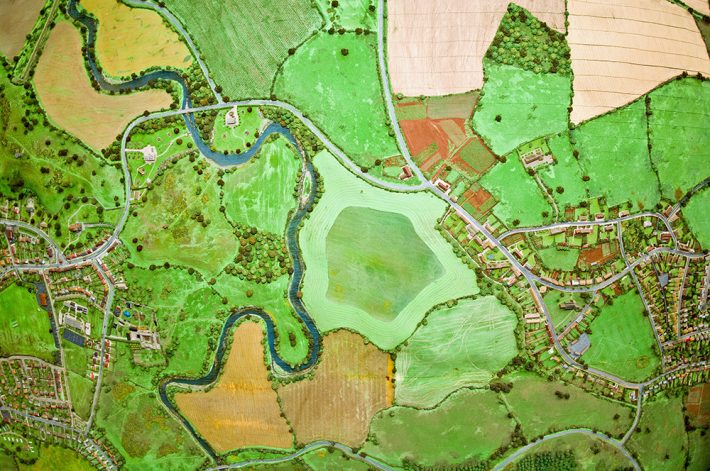Will Biodiversity Net Gain deliver for nature in England?
Research indicates that the mandatory Biodiversity Net Gain requirement in England will need refinement in order to deliver true gains for nature. We caught up with researcher Sophus zu Ermgassen to find out more.

Across the UK there is a conflict between the development of land, for example for additional housing and other infrastructure, and biodiversity conservation. The introduction of a mandatory 10% Biodiversity Net Gain (BNG) requirement through the Environment Act (2021) seeks to tackle this conflict in England, requiring a net gain in biodiversity relative to the pre-development biodiversity value. Developments will therefore have to be designed in such a way that they provide benefits to people and biodiversity as well as reducing impacts on the wider environment.
Mandatory Biodiversity Net Gain requirement
Mandatory BNG will be implemented through the planning system and will apply to developments permitted under the Town and Country Planning Act and Nationally Significant Infrastructure Projects. The biodiversity gains and losses associated with development will be measured in ‘biodiversity units’ through the application of a metric (expected to be the Natural England biodiversity metric 3.0, subject to refinements following consultation) taking account of factors such as extent and condition of habitats at the development site.
Developers are required to ensure that the loss of biodiversity units are more than compensated by biodiversity gains either on or off site. Achieving BNG should in theory follow an approach consistent with the ‘mitigation hierarchy’. This gives priority to avoiding and minimising development impacts on biodiversity and then mandates, in decreasing order of preference, that measures should be put in place to enhance biodiversity on-site, create or enhance off-site habitats or purchase statutory biodiversity credits from UK Government. It is hoped that the BNG requirement will generate a market for biodiversity units worth significant amounts of money – estimated at £135m – £274m per year in a recent government report – relating to the creation of off-site habitats.
Delivering for nature
Many welcome the BNG commitment and acknowledge that it has the potential to be transformative for English nature. However, researcher Sophus zu Ermgassen, lead author on a paper exploring the ecological outcomes of mandatory BNG, has raised concerns that without closing existing large governance gaps, BNG benefits may be much smaller than hoped and there is a risk of negative consequences.
Sophus explained that “Our net gain database shows that the vast majority of the benefits of net gain, as it stands, are being delivered through promises of small, high-quality habitats many years in the future, within the development footprint. If these promises of improved future condition within the built environment do not materialise in reality, then net gain might be associated with a considerable loss of greenspace which might actually harm nature overall.”.
Sophus highlighted that it is therefore essential that developers can be held accountable for any failures to deliver the habitats they have committed to in the future, a process that will require clear monitoring and enforcement. Usually enforcement will lie with local planning authorities, so it is vital that capacity and expertise is available to support this process.
It will be key to ensure that habitat assessments are robust to make certain that the biodiversity present at sites is not undervalued. Sophus also argues it is important to make sure that at least some of the conservation activities contributing to BNG are directed towards improving the local nature recovery networks rather than through landscaping measures within developments, which risk delivering less real-world biodiversity benefit.
A well-designed BNG policy has potential to genuinely help reconcile development and biodiversity conservation, but it is critical that the governance, monitoring and enforcement are in place to realise true gains for nature.
Defra consultation
Defra are currently consulting on the practical and legal implementation details of the new biodiversity net gain requirement (consultation closes 5th April 2022). Please see the Defra consultation webpage for more details or to respond: https://consult.defra.gov.uk/defra-net-gain-consultation-team/consultation-on-biodiversity-net-gain-regulations/
Like what we stand for?
Support our mission and help develop the next generation of ecologists by donating to the British Ecological Society.